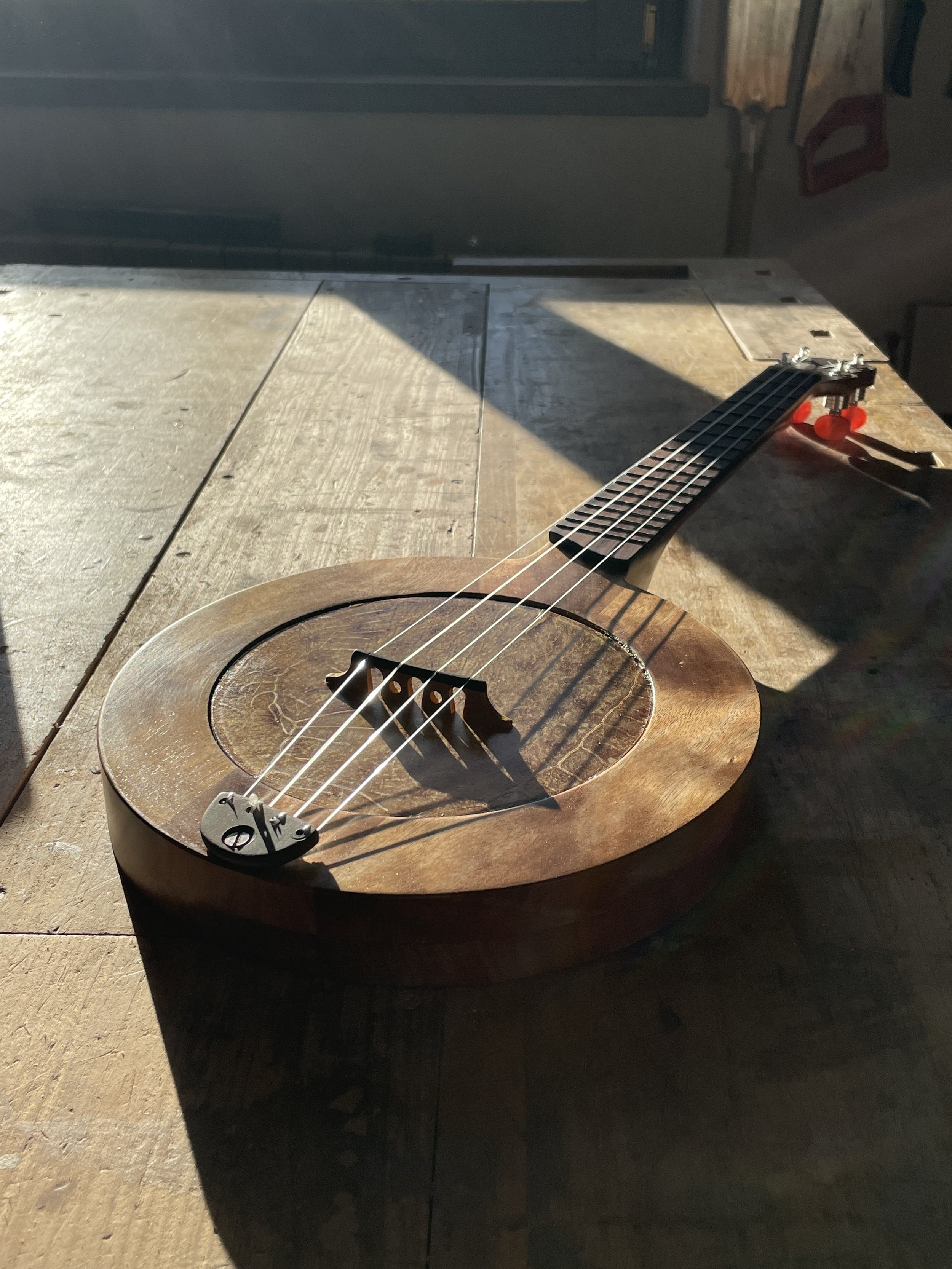Paolo Bianchi - Gavirate, ITALY
Where he started
Paolo started building ukuleles in 2019 while attending the school of lutherie in Milan. He studied full-time for 4 years. He learned to build all types of plucked instruments from ancient instruments like renaissance lutes and mandolins to much more modern instruments like the classical and acoustic guitars and electric guitars. Here he found building ukuleles as a way of expressing his creativity and be able to experiment with shapes, sounds and materials.
“What I enjoy the most about my job is the freedom to create new things. It’s never repetitive, and I can always change and innovate. I also, love the fact that I’m creating quality objects that someone will appreciate and cherish for a very long time.”
I always try to be as unique as I can…
In his opinion, the most critical part of building is creating a comfortable instrument, he feels that these characteristics are influenced by various aspects and is found in the smallest details, such as shaping the edges, precision in fretwork, fret shaping, string height and tension and overall weight balance.
“What sets me apart from other builders is my aesthetic research. Each luthier has their own particular look and I always try to be as unique as I can. It is important to me that my instruments standout in appearance, quality of craftmanship – which I strive to make as high as possible.”
Lasting impression
Paolo draws many inspirations from a number of different builders, but one of his favourites is Pagelli from Switzerland. He believes they create the most incredible instruments with a lasting impression and are the highest quality.
“Build with sustainable and local woods.”
“Today, musicians love instruments built with beautiful exotic woods such as Ziricote, Ebony, and Rosewood. I also appreciate these woods, but I believe it is even more special to use local woods from the region where the luthier works. This can result in a more unique instrument, embodying the passion of the luthier and the essence of a particular country. It also adds to the diverse world of ukulele sounds – Build with sustainable and local woods!”












